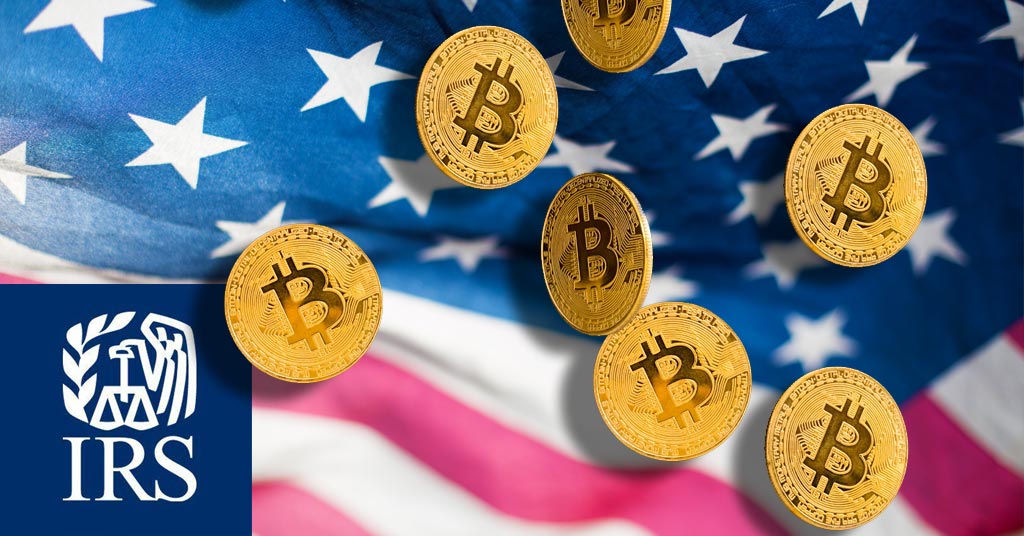
IRS hunts Bitcoin and crypto investors who haven’t paid their taxes

The IRS is looking for Bitcoin and crypto investors who don’t have their taxes in order.
On the hunt for tax evaders, the U.S. Internal Revenue Service is forcing cryptocurrency exchanges to disclose their customers’ activities. Large, unreported profits of bitcoin, or other cryptocurrencies could translate into big trouble with the IRS.
U.S. tax liability and FATCA
Are you a taxpayer in the U.S.? Do you correctly file your FBARs each year? Do you own Bitcoins or other cryptocurrencies? Stay informed regarding American tax laws to avoid unpleasant surprises.
President Biden, as is well known, is looking for tax money to close the “Tax Gap”.
FATCA (Foreign Account Tax Compliance Act) legislation ensures that banks and other financial institutions report banking information to the IRS each year, but does this also apply to crypto platforms?
U.S. tax authority IRS views cryptocurrencies as property
The IRS sees crypto coins as property, not assets, or foreign currency. This is an important point. Many countries see crypto coins as a form of currency.
After all, you can make payments with them, invest in them, and trade the coins. The IRS sees this differently: “Virtual currency transactions are taxable by law just like transactions of any other property. Taxpayers transacting in virtual currency may have to report those transactions on their tax returns.”
What this means in short, is that one should regard Bitcoin and other cryptocurrencies as property. If you sell the property at a profit, you may need to report it on your U.S. tax return, which could result in a “Capital Gains” tax.
Considering that more and more payments can be made online with cryptocurrencies, these transactions become tax-challenging for the person buying and selling them. The IRS indicates that the individual is responsible for reporting these transactions and the associated exchange rate.
Do crypto platforms report to the IRS?
Cryptocurrencies were initially set up as anonymous, untraceable money. However, many countries are trying to get a grip on this to uncover/prevent, for example, money laundering, and tax evasion. The IRS is also working on this.
According to the IRS, various studies show that many Americans are “hiding” money in the form of crypto coins. To combat this tax evasion, the IRS is now working on new rules to also require cryptocurrency exchange platforms to report annually and thus put an end to “banking secrecy.”
Experts expect it to be just a matter of time before the various exchange platforms start transmitting data to the IRS. The IRS can then match this data with individual tax returns and FBARs received.
Exemption for individuals
There is a bill in America as of the beginning of 2020: the Cryptocurrency Tax Fairness Act. Among other things, this bill affirms a $200 profit exemption for private transactions. At the time of writing, this bill has not yet become law.
For Americans overseas: make sure that this information in the knowledge center stays up to date; developments are shared through the newsletter and on social media.
Need more information about bitcoin and U.S. tax for Americans Overseas?
We, the founders of Americans Overseas, were born in the Netherlands and obtained our American nationality through our (American) mother.
When we heard about the US tax system for the first time around 2013, we were in total disbelief (it can’t be true!), anger (how can they do this?), fear (am I going to get fined or pick up other problems?), and panic (what should I do?). It is (unfortunately) true that there is an additional American tax levy. But there’s no information from the local government, and when approached, the consulate referred us to the IRS, and the IRS was impenetrable.
That’s why we started this initiative to help people from all over the world by providing proper information about the US tax system to avoid unnecessary panic and offering help free of obligation and free of charge. If needed, we have a network of affordable professionals (accountants) who can help you with your tax obligations.
Contact us for more information
Source: The Internal Revenue Service Can Improve Taxpayer Compliance for Virtual Currency Transactions, Bitcoin IRS
Frequently asked questions
Understanding the US tax system, the obligations, and all the additional terms can be difficult. Especially if one lives outside of America. Is your question not answered? Contact us.
-
Who is required to file taxes in the US?
U.S. citizens and resident aliens who live abroad are generally required to file a federal income tax return and pay taxes on their worldwide income.
Read more... about Who is required to file taxes in the US? -
Do US citizens living abroad still have to file taxes in the US?
Yes, US citizens are required to file taxes on their worldwide income, regardless of where they are living.
Read more... about Do US citizens living abroad still have to file taxes in the US? -
How can I cash my US check?
Received an American check? You can cash your check in the following ways: cash the check at your own bank, transfer to another person (endorsement), cash checks using an online service or cash the check by another bank.
Read more... about How can I cash my US check? -
Are there any special tax forms required for US citizens living abroad?
US citizens living abroad may be required to file Form 2555 and/or Form 1116 to claim the foreign-earned income exclusion.
Read more... about Are there any special tax forms required for US citizens living abroad? -
What is FBAR filing?
FBAR (Foreign Bank Account Report) filing is the requirement for certain U.S. individuals and entities to report their foreign financial accounts to the Financial Crimes Enforcement Network (FinCEN) of the U.S. Department of Treasury. The FBAR filing requirement applies to U.S. persons who have a financial interest in, or signature authority over, one or more foreign financial accounts if the aggregate value of those accounts exceeds $10,000 at any time during the calendar year.
Read more... about What is FBAR filing?





